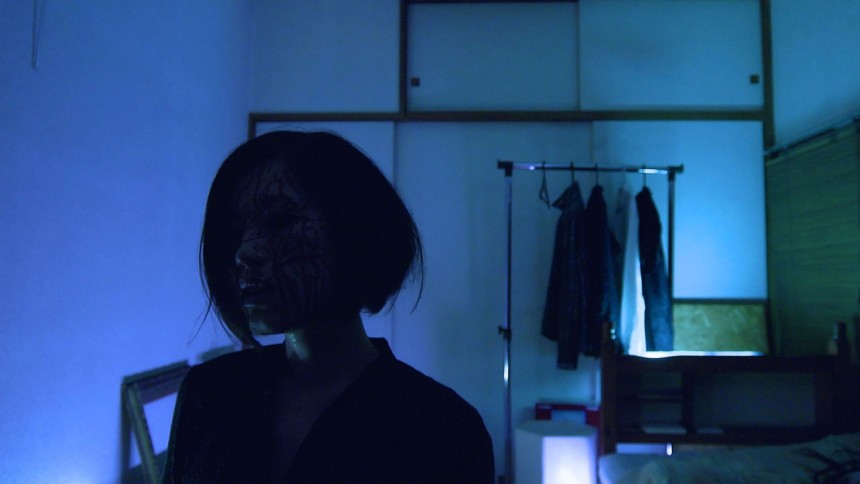
Reviewing Japanese indie films has been an uneven proposition as of late, with some independent directors trying to mimic mainstream film and others getting caught up in the maudlin or sentimental. I’m happy to report Swaying Mariko falls victim to neither of these common traps. In fact director Koji Segawa has crafted a finely tuned piece that turns on the main character’s subjectivity and possible madness. Somewhat reminiscent of Roman Polanski’s masterpiece Repulsion, the work screened in 2017 at one of the American festivals that celebrates truly indie work, the Raindance Film Festival, and is a fine representative of the Japanese art house scene today.
Mariko (Chise Ushio) has a life of a housewife that might be familiar to many Japanese women. Her husband Tomoharu (Keita Yamashina) is both emotionally and physically absent, comes off as antagonistic and shows little interest in Mariko. She believes he may be having an affair but he may simply have no interest in his wife. Mariko is raising their young son Riku while holding down a job at a batting center. These constant pressures are intensified by the fact her boss is a lecherous scum who sexually harasses her, peeps on women dressing and has sex with other female employees in the common room. The general atmosphere at the center is one of bitterness, with caustic workers and rude customers. With resentment, rage, loneliness, paranoia and repressed sexuality dominating Mariko’s reality we are drawn into her subjective space with long silences, a static camera and the fine acting of Ushio. We’re introduced to her searing inner dialog which judges and condemns everyone around her as well as starts to spy on her own husband. Finally Mariko cracks and goes on an apparent bender that is violent and self-indulgent of her grudges. Segawa’s genius is that while we’re so enraptured in Mariko’s world we still can’t tell if this is reality or her vicious fantasies she’d like to live out. The director uses both hand-held and tracking shots to great effect and we experience the apparent or imagined madness and retribution. After this episodic psychosis we’re not sure if Mariko is back to coping or there is a just a lull before she fully goes over the edge. Segawa employs just the right mix of mundane world and insanity to keep the viewer supposing what is actually going on. With fine camerawork, acting and direction we become immersed in Mariko’s swirling, twisted world.
(Japanese title: Tamayura no Mariko; 65 min.)







